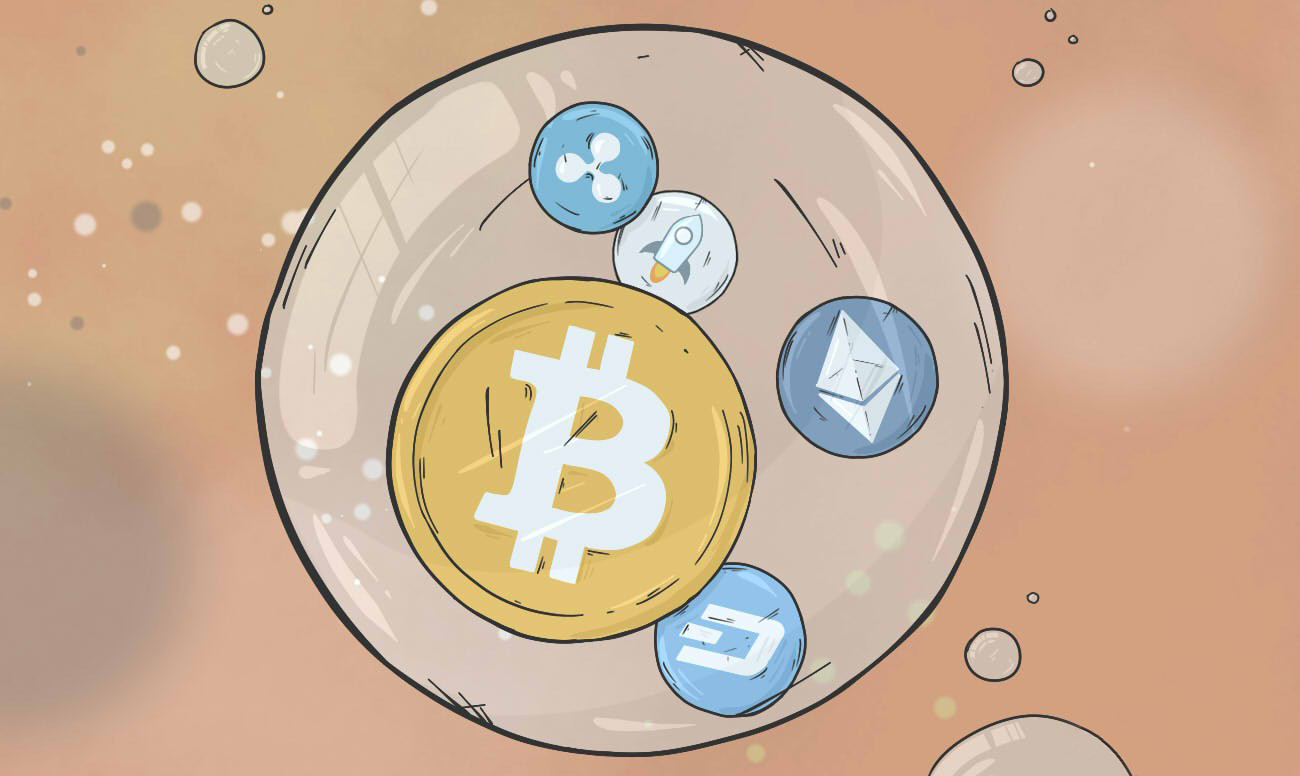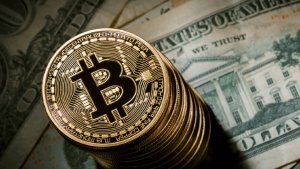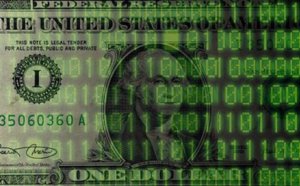Jim Chanos, founder and managing partner of New York-based Kynikos Associates, has spent much of his career studying financial fraud. He shares his thoughts with the Institute for New Economic Thinking—where he is a member of the Global Partners Council—on cryptocurrency, fraud coming from China, and why fraudsters may currently be on the rise. Chanos teaches a course on the history of financial fraud at Yale University and the University of Wisconsin.
Lynn Parramore: As someone who pays a lot of attention to financial fraud, you’ve noticed that this activity has a connection to business cycles. Can you explain that and say where you think we are right now?
Jim Chanos: I’ve found in my research and my teaching that what I would call the “fraud cycle” — instances of large-scale financial fraud over multiple platforms and companies in the financial markets in the modern era (the last 500 years) — follows the financial cycle with a lag. That means that as business and particularly financial markets improve, peoples’ sense of disbelief and caution that they’ve often earned from the previous downturn begins to erode. Schemes that before might have seemed too good to be true begin to be embraced.
LP: So people relax their financial vigilance.
JC: Exactly. The longer the cycle goes on, the easier it becomes for the dishonest and the fraudsters to ply their trade because people will begin to believe in things that they shouldn’t financially. As cycles go on, we tend to see higher instances of fraud. In recent memory, there were clearly, from a legal and prosecutorial point of view, more cases of fraud after the dot-com bull market of the late ‘90s, which went from 1991 to 2000. Many of the dot-coms turned out to be fraudulent. We then saw the Enrons and the WorldComs and the Tycos. Frauds generally come to light after the financial cycle turns down. We saw this again after the crisis following the bull market of 2003 to 2007.
What happens is that the new capital going into these things dries up. Many frauds are, by their nature, Ponzi schemes that require new money and new investors to pay off the old investors. When people want their money back, the insolvency of the venture is discovered. John Kenneth Galbraith has this wonderful term called “the bezzle” [inventory of undiscovered embezzlement]. That’s the heart of the fraud, the nature of the fraud in the company. He points out that in the up phase, there’s this wonderful period where both the fraudsters and the defrauded think they’re getting richer. An interesting observation, right?
Of course, it works the other way on the down side. That’s what I mean when I tell my students to follow the cycles and be on guard the longer a financial and business cycle lasts because people will get a little bit jiggy with their capital. They’re willing to take risks, willing to believe things. So today we’ve got bitcoin and ICOs [initial coin offerings], which went ballistic in 2017. I suspect going forward we’re going to see more and more evidence of questionable companies as this bull market keeps advancing and aging. We’re now nine years into this bull market, same as the ‘90s, so I suspect that now things are starting to percolate. I think bitcoin and the ICOs are just one manifestation of that.
LP: I just passed a huge crowd gathered around the New York Hilton Midtown for “Blockchain Week NYC,” a series of events put on to showcase the city as a hub for blockchain jobs. You could feel the excitement in the air with all the attendees and reporters jostling on the sidewalk. What’s your take on all this hype?
JC: At one blockchain gathering there were a set of rented Lamborghinis parked outside to entice the traders and day traders and retail investors: this, too, can be yours if you hop aboard the blockchain and bitcoin bonanza!
I teach about a guy from the early 18th century called John Law. He was the architect of one of the great financial frauds of all time — the Mississippi scheme of 1718-20 in Paris. (He’s also the guy who founded New Orleans. He sent settlers there who named it after his benefactor, the Duc d’Orléans).
Law was the first person to write about the need for foreign governments to have fiat currencies and not be tethered to gold and silver. Because of the power of taxation and the power of the governments through enforcement and force of arms, they could enforce their currency to be used, and because of their ability to expand the monetary base and do all the kinds of things that central banks now do, it was in their best interest to do so.
This was revolutionary back then. Law’s failed experiment, which added lots of fraudulent bells and whistles to that scheme in France, put the idea on the backburner for a while. But economic historians have revisited it now and his early papers are genius. They’re up there with some of the stuff Keynes wrote in the 20th century in terms of the way he envisioned monetary systems to work. Law points out sort of obliquely the positive ways in which the citizenry would come to accept and trust paper money. Not only would the power of the state compel you to accept it, but the power of the state also acted as a third party to adjudicate problems, fraud and act as a lender of last resort in times of crisis instead of going down into a deflationary spiral. That was the positive side.
In the new bitcoin and crypto-craze, the whole idea is that we need to get away from fiat currencies by creating our own fiat currency for which there is no lender of last resort, no third party adjudicator. For those who believe it’s a store of value in the coming apocalypse, the idea is that you’re going to have to safeguard your key under a mountain with fingerprint and eye scan security while the hordes are outside your bunker trying to get in to use it — for what, I have no idea. Because for those who believe that you need to own digital currency as a store of value in the worst-case scenario, that’s exactly the case in which a digital currency will work the least. Food would work the best!
LP: Sounds like a libertarian fantasy.
JC: That’s exactly what it is. And if you say, well, fiat currency is going to bring the world down, which could, of course, happen, then I say the last thing I’d want to own is bitcoin if the grid goes down.
LP: It also sounds like the perfect realm for people looking to commit fraud.
JC: Well, there you go. Bitcoin is still the area for people who are trying to avoid taxation or other examinations of their transactions. That’s one thing where I think it probably still has utility, but the governments have figured that out.
Last year, just as the mania was really going, an early convert who had gotten in early and had made a lot of money wrote this humorous blog about trying to cash in his winnings, if you will. He chronicled telling the exchange that he wanted to convert his bitcoins into U.S. dollars and have them wired into his U.S. bank. It took something like eight or ten days and numerous follow-ups and phone calls. The funniest part was his having to fax his passport to Lithuania.
LP: That doesn’t sound very high-tech or efficient.
JC: Exactly. Using a fax machine to Eastern Europe struck me as kind of the antithesis of what you’re trying to do here. So this is simply a security speculation game masquerading as a technological breakthrough in monetary policy. Someone at Grant’s interest rate conference recently said that it was as if we had intentionally created a “monetary Somalia.”
LP: So buyer beware.
JC: I think so.
LP: You recently appeared in a fascinating documentary, “The China Hustle,” which concerns the reverse merger boom in which I believe 400 Chinese companies came to market on the U.S. stock exchange. Can you say a bit about what these mergers are and how U.S. investors got conned?
JC: A reverse merger is simply when the company in question merges into a defunct, U.S.-listed corporation, typically on NASDAQ, which has been moribund for years but has still been filing with the SEC, so it may have a listing somewhere.
We can see these reverse mergers in the late ‘90s when they became dot-com companies, and also in the late ‘70s, when gold was a hot asset and they became gold mining companies. In the last ten years, they started to appear to take advantage of the growth of Asia and the growth of China. It’s very easy to sell small, retail investors on this idea. It sounds very appealing.
What happens is you merge the Happy Flower High Tech Company into some defunct company and you rename the old company with the Chinese name. Voila! The Chinese company is now public in the U.S. without having to file an IPO [initial public offering] prospectus with the SEC. You don’t go through underwriters, a due diligence process, or a vetting process where the SEC asks questions on the IPO. But you now have a company on NASDAQ or the U.S. Stock Exchange.
This is what “The China Hustle” was about — this raft of companies that merged with companies you’ve never heard of and created, instantaneously, reasonably large-capitalization companies operating in China but trading in the U.S. Of course, therein lies the rub. How do you really know what was going on in the operating company? How good was the accounting? How good were the representations of the outside auditors and representatives of the boards? It turned out that a lot of them were frauds.
LP: So I’m an investor and I hear that this Chinese company has come to market in the U.S. and it has been audited by Pricewaterhouse, Deloitte, or some other well-known auditing firm. I think it must be legit. What’s wrong with this assumption?
JC: There are two big problems there. When people always ask me about the large frauds we’ve dealt with, they ask, who were the auditors? And I say, who cares? Every great fraud was basically audited, most of the time by major firms. In China it’s even worse than that because although the statements might say Pricewaterhouse, if you read the fine print it actually says, “Pricewaterhouse reviewed the work by an affiliate in China.” So it’s often a smaller firm that has a relationship with the big firm that actually does the auditing. Pricewaterhouse just puts its stamp of approval on that.
LP: Sounds kind of like what the big credit ratings agencies did by giving triple-A ratings to securities that were fraudulent in the lead-up to the financial crisis.
JC: Right. But you have to remember that auditors are not the financial check that most people think they are. The financial statements are not prepared by auditors. The financial statements in publicly traded firms are prepared by management and the auditors review the statements. Unless they have reason to believe something is amiss or are pointed to something being amiss by a whistleblower or short seller or journalist, they’re not going to detect anything most of the time.
LP: Auditors are not detectives.
JC: No they’re not. They’re really paid by the company to review the company’s own financial statements. So at the end of the day, this still comes back to the management and the board. Do you trust them? Do you believe what they’re telling you? What is your ability to check?
LP: In the case of the Happy Flower Company, I can’t really check.
JC: Not only that, one of the points that the movie made very well was that even if you find the smoking gun and the chairman runs off with all the money and you’re left with nothing, the recourse to western investors is virtually nil. None of these CEOs are prosecuted. The view of the Chinese court system, which, I should point out, is an arm of the Communist Party, not the Chinese state, is, “sorry, but no jurisdiction here. You’re a western investor and you ought to know better.”
LP: Can the SEC do anything?
JC: The SEC did announce a crackdown after the fact, but besides monitoring companies’ ongoing disclosures and trying to halt trading in the securities if there is evidence of a problem, there isn’t a lot that the SEC can do. These are Chinese companies.
LP: How do you view the climate for financial fraud under the Trump administration? I note that Trump’s SEC nominee, who was sworn in as chair last May, was an Alibaba IPO advisor — the Silicon Valley lawyer Jay Clayton. You’ve expressed skepticism about Alibaba.
JC: I have, and so far I’ve been wrong, at least with respect to the stock price. But I challenge anyone to explain to me cogently what Alibaba is doing with all its capital and flipping companies back and forth to insider and revaluing the prices of companies upward.
Be that as it may, the real issue is, what is the sense of the administration? I’ll say one thing, when the George W. Bush administration started — remember, he was the MBA president — he came in on a pro-business platform and was seen as very pro-business and anti-regulation, similar to the Trump administration. But when the wave of fraud started hitting in ’01 and ’02, I have to give the John Ashcroft Justice Department a lot of credit. They did a 180 and went after the bad guys hard.
I always joke that the two presidents who have put more executives in jail than all the rest combined were both named Bush. W’s father was instrumental in prosecuting the S&L [Saving and Loan] crooks back in the early ‘90s and put about 3,000 of them in jail. I think they realized that the public was losing money in the stock markets, not just because of the frauds, but because the long dot-com bull market had ended. People were upset. Then when you had the revelations of WorldCom and Enron on top of it, there was a sense that every corporation was crooked and this was going to have exogenous impacts on the economy and the market as a whole. I think they correctly realized that we’ve got to basically show that we’re the cops on the beat. And they did.
That did not happen, as you well know, after the GFC [Global Financial Crisis], for lots of reasons, including a Justice Department that actually took the extraordinary step of admitting that it considered economic and financial market factors in figuring out when, or if, to prosecute a company. So justice now had an economic angle to it. We sort of know how we think about the Trump administration — I noted the other day that the Education Department seems to have shut down its division investigating fraud at the for-profit education companies, which are one of the biggest cesspools out there in terms of financial fraud and fraud upon the taxpayer. So that’s not a good sign. On the other hand, public opinion can move things quickly as it did in the Enron case. We saw a real stepped-up effort to go after the bad guys.
I think a lot depends on circumstances at the time. We’re still in the expansionary phase of the financial cycle and, arguably, the fraud cycle, so we’ll have to see what happens once that rolls over.
LP: Let’s talk about emerging markets. Do you think a big crisis could develop as investors head back to the U.S. as the Federal Reserve raises rates here?
JC: The emerging markets are always sort of the end of the wick, right? They always go down the most when fear is out there and they go up the most when people are euphoric. Emerging markets had a really rough go of it from 2011 right on to 2015. They never really recovered a lot from the GFC. Then someone hit the light switch and whether it was things changing in Brazil or [former president] Jacob Zuma being ousted in South Africa or South America turning the corner. I would note that Argentina issued a one hundred-year bond a year ago that was oversubscribed, and this week Argentina went back hat in hand to the IMF [International Monetary Fund], so we’ve had this amazingly quick shot across the bow in the emerging markets. We’ll see if it’s the start of something bigger. But it’s sort of amazing to me that after only a two-year respite, places like Argentina and Turkey seem to find themselves in trouble again. Time will tell.
LP: One thing you said in “The China Hustle” is that we’ve never seen a credit build-up like the one we’ve seen in China today that hasn’t been followed by a major financial crisis. That sounds pretty worrisome.
JC: I’m always told confidently it won’t matter because they owe it to themselves. Well, if that was that were the case, then Zimbabwe would be one of the wealthiest countries in the world today!
The build-up of China’s debt and the speed of that build-up is nothing short of stunning. There’s a new book that I recommend, “China’s Great Wall of Debt.” It does a great job of chronicling just how massive this build-up has been in the last ten years following China’s stimulus in ’09 to pull the world out of the GFC. You’ve heard me call it the “treadmill to hell” because you have to put more and more debt on the books to keep the growth going and this is where China is finding itself. If they don’t increase the debt, the economy hits stall speed and for all the talk about innovation and technology and transferring to a consumer-driven, technology-driven economy, the evidence on that is kind of scant. It’s still basically an economy driven by debt-driven investment, which is still over 40% of GDP. I think when we started talk about China it was 46% and I think the most recent number is about 43%. So it’s improved slightly over the eight or nine years, but not much.
China is still basically a giant construction site and shows no signs of changing. In fact, with the One Belt One Road Initiative [a project launched in 2013 to develop trade routes to connect China to the world], they’re trying to basically export their construction capabilities and credit to countries along what we would call the Old Silk Road.
LP: In terms of the overall picture of fraud, are we any better off than we were after the financial crisis?
JC: Personally, I think we’re worse off. I think we were better off after the dot-com era. Not because we enacted Sarbanes Oxley [passed by the U.S. Congress in 2002 to protect investors from fraudulent corporate accounting activities] but because the public saw that there was justice. The bad guys got caught and at least if I lost money, they paid the price of their freedom. That never happened in ’08 and ’09 for a variety of reasons. We’ve just had a continuation of the cycle and the cycle is still going.
LP: So fraudsters are emboldened?
JC: Right. And now we come back to bitcoin. What’s your recourse if you lose money in an ICO traded on an exchange offshore? If people lose lots of money, there will be an outcry, but no recourse. So we’re building into something. I suspect it’s in front of us and it will be interesting to see what happens.
LP: What happens in a capitalist system to good people who want to behave ethically? How can they succeed in an atmosphere in which fraud and unethical behavior are constantly happening?
JC: I think capitalism is still the best game in town, but the very best games have good sets of rules, and, even more importantly, good umpires and referees. When the game becomes tilted and the house has the advantage, people tend to stop playing.
When the system is seen as corrupt or dishonest, there’s a political price. We saw this after the GFC. People in New York and San Francisco and Boston might be fine with everything, but in the South and Midwest, where you’re from and where I’m from, there’s still this general sense that “the bastards got away with it and I’m still suffering.” So there is an exogenous cost to this where people don’t feel that there was justice. They feel that they were taken advantage of by those sharpies on the coasts. It brings out some of the worst in people, of course, so that’s one small step, then, away from social problems like anti-Semitism and anti-immigrant feelings. It’s us v. them. Nobody is looking after us.
Economists and financial analysts have a hard time quantifying all these things, but I think that the point is that fair markets where there’s a set of rules, where there’s a cop on the beat, where there are regulators making sure that people are adhering to the rules, are far better markets than one in which caveat emptor is written above the casino. I think it behooves us as a society to understand that capitalism is an amazing driver of progress and prosperity and wealth, but it can be diverted. There’s a dark side to it if we don’t play by the rules and if we don’t encourage capital formation from all members of society who don’t feel they’re getting a fair shake.
Everybody gets that capitalism involves risk-taking. But the asymmetric situation where people who are dishonest get away with it while people who are honest and provide capital get left holding the bag will really stunt capitalism. I think that’s the issue which the vigilance on fraud, why it’s so important. It is part of the capitalistic system. There will always be people trying to take advantage of other people. It’s still better than when the whole system is flawed, like totalitarian communism, where corruption starts at the very top in terms of the planning itself. But on the other hand, the counterfactual is that it could be so much better if everybody is participating and understands that there is a strong set of rules and penalties when you break them and justice as well. That’s what I think has been lacking in the last generation.










